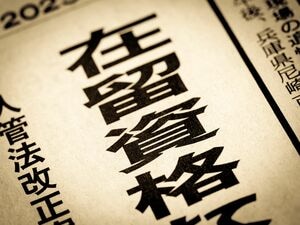Egypt- a country with high corruption perception index
According to the 2018 edition of The Corruption Perceptions Index which has been published annually since 1995 by Transparency International, an international NGO in Germany that works on corruption issues, Egypt ranks 105th out of 180 countries in the world (the lower the ranking, the worse the corruption). The country is tied with Brazil, Côte d'Ivoire, El Salvador, East Timor, Zambia and others.
The country that is ranked No.1 in this list (least corrupt) is Denmark. Japan is 18th, France is 21st, the United States is 22nd, and China is 87th. When I was a banker I actually saw or heard about corruption cases in Slovenia, Cyprus, and Lithuania. Those countries rank 36th to 38th in the index. Therefore I would say, very roughly though, that only top 30 countries or so are the places where university degree certificates can be trusted.
Apart from the fake degree certificates, there are numerous other corruptions in Egyptian state Universities; one of them is private tuition by professors.
Yoshihiro Asakawa, an agricultural journalist and advisor who studied at Cairo University's Faculty of Arts (Hebrew language major at the Department of Oriental Languages) between 1993 and 1995 mentions in his book “Cairo University-Chaos of Conflict and Peace" (published in 2017) that “(When I joined Cairo University) I was unable to get text books for lectures. It doesn’t mean that they were out of stock. It was that professors intentionally obstructed the distribution of the text books so that students couldn’t get them. The professors cut corners in lectures and did not cover the scope of the exam. Then that means that the students would not be able to pass exams but that is exactly the professors’ intention. If students want to pass the exam, they have to pay the professors to have private tuitions." “After the Egyptian Revolution (in 2011) a professor of linguistics professed “The entire Cairo University is corrupt and mediocre. In addition to private tuitions, there are problems of endless holidays (for professors), not keeping on lecture time, exclusive use of the text books written by the professors to get royalty, only teaching at lectures with a lot of students in order to maximize the number of students seeking for private tuitions (if there are too many students such as thousands in a large class room, they cannot fully understand the lecture). By these disreputable practices we professors made living through (economically) difficult times. (Al-Fanar Media dated 25 February 2013). This reality is the epitome of Egyptian society."
What is a degree?
What is a degree? Ken Ito, Associate Professor of the University of Tokyo, stated in clear terms what it is in JBpress’s article "The fundamental problem unwittingly exposed through Haruki Murakami's press conference on fraudulently obtaining a degree".
At a press conference at Waseda University, where Murakami graduated from, he said, "When I was a student at Waseda University there was an Associate Professor in French literature named Shinya Ando who was also a famous translator. I was taking his lecture on Jean Racine (a 17th century playwright). I didn't attend classes which meant that I wouldn't be able to graduate. I explained to him why I couldn’t attend." (Murakami was too busy running his jazz café to earn his living.) “Professor Ando said 'Well, let's go to your café then’. He came to Kokubunji City in Tokyo (where Murakami’s jazz café was located)". “He looked inside my café and said ‘Your life seems tough’ and he later gave me a pass grade. He was a good man. I hadn't read a single line of Racine though".
Referring to Murakami’s speech Ito mentions angrily "This is nothing but a case of fraudulent acquisition of academic credentials. Professor Shinya Ando would not be able to escape some kind of punishment if that happened today. The degree certificate of Murakami who professed to have graduated with fraudulently obtained grades should naturally be returned and he should be stripped off the graduation credentials". “What would happen if, for example, at Harvard, MIT, or Cambridge University a graduate disclosed in the presence of university officials that a faculty member had fraudulently allowed that person to pass a course of study despite the academic performance being substandard? The faculty member who gave the grade would be held accountable. In my view, there is no doubt that the credit earned should be revoked, and the degree certificate to be returned, and the graduation credentials to be suspended.
https://jbpress.ismedia.jp/articles/-/54648
The "fake degree certificate" of Egypt's state universities are far worse than the case of Haruki Murakami. As a matter of course having a "fake degree certificate" does not qualify as a degree. It is like degrees issued by now-closed Pacific Western University in Hawaii which was selling diplomas. In order to qualify for a degree you need to have fulfilled grades and credits required for graduation. There is doubt as to whether Koike fulfilled these requirements.
Ryo Kuroki is one of the best-selling authors in Japan. He graduated from Waseda University (BA in law, 1980) and the American University in Cairo (MA in the Middle East Studies, 1986). He has so far published 25 books which are mainly economic novels and non-fictions such as "The Bulge Bracket", "Energy", "Carbon Credit Merchant". His latest title is "Rise and Fall of Japanese Apparel" (February 2020). He lives in the UK since 1988.











